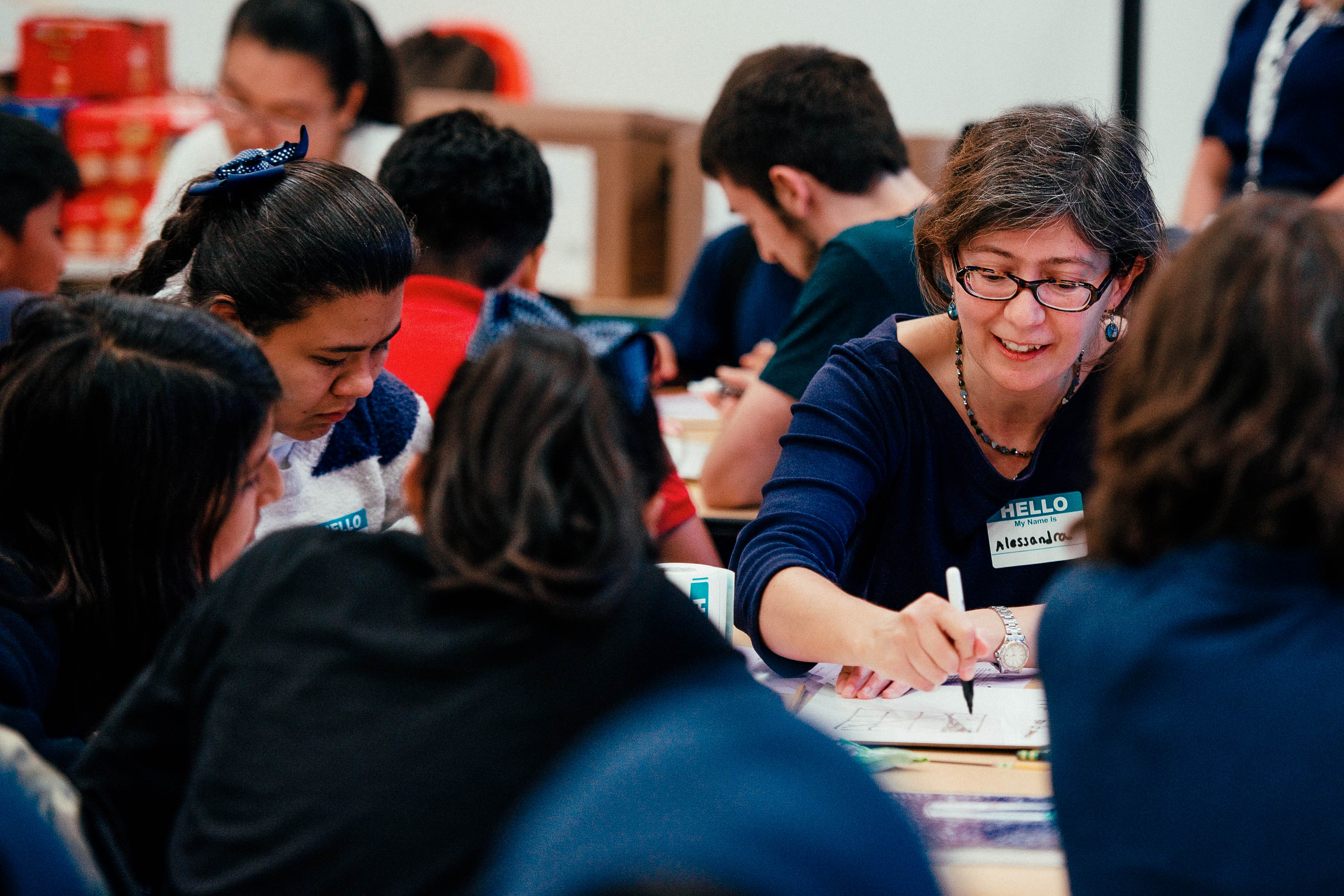Alessandra Pantano of Mathematics wins Inclusive Excellence Spirit Award

Until the pandemic hit, all of the department's in-person mentoring ceased. The award will help Pantano, pictured here with K-12 students from Santa Ana, and her team adapt to a remote world.
Last month, the UCI Office of Inclusive Excellence awarded Alessandra Pantano of the Department of Mathematics one of its 2020 Inclusive Excellence Spirit Awards. The award goes to projects proposed by UCI faculty that advance the university in different areas, like deepening understanding of identities, promoting intercultural competency and advancing achievement among educationally disadvantaged communities. Pantano’s winning proposal, titled “Leveraging the Cultural Capital of UCI Latinx Students to Transform a Mentoring Program for Underserved Kids During a Global Pandemic,” is something she developed alongside mathematics Ph.D. student John Peca-Medlin, who’s also the inaugural fellow for the department’s new COMP grad student mentoring program. The award includes $5,000 in funding for Pantano and Peca-Medlin to bolster virtual mentoring efforts through the department’s Community Education Outreach (CEO) program, which Pantano co-founded and co-directs with fellow Mathematics department professor Li-Sheng Tseng. Until the pandemic hit, Math CEO ran free, weekly after-school activities for hundreds of underserved middle school and high school students and their families, mostly in the Santa Ana area, which has a population that’s about 85% Latinx. Since last summer, the CEO team has been at work developing things like an online afterschool math enrichment program, training college mentors on effective ways of delivering instruction and developing communications networks — including biweekly newsletters featuring student and mentor spotlights, as well as math riddles — for keeping mentors connected with families.
